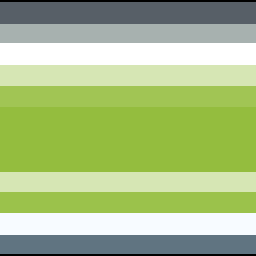My first thought was to be appalled at the lack of education on display… But is there any real reason to keep analog clocks… other than habit and nostalgia?
Accessibility.
We will never get rid of the analogue clocks from our school, we’re an adult education and alternative model highschool qualifications centre.
We primarily teach adults with no to low English, adults and teens with disabilities, and adults and teens refered via corrections services.
There is a significant level of illiteracy within numeracy, and for some of our students, it’s not a failing of the education system, it’s just a fact of life given their specific circumstances (eg, acquired brain injuries are common among our students)
Some students can learn to tell time on an analogue clock even if they didn’t know before.
But even my students who will never in their life be able to fully and independently remember and recall their numbers can tell the time with an analogue clock.
I tell my students “we will take lunch at 12pm, so if you look at the clock and the arms look like this /imitates a clock/ we will go to lunch”
And now I avoid 40 questions of “when’s lunch?” because you don’t need to tell time to see time with an analogue clock, they can physically watch the hands move, getting closer to the shape they recognise as lunch time.
And my other students can just read the time, from the clock, and not feel infantalised by having a disability friendly task clock like they’ve done at other centres I work at - they’ve had a digital clock for students who can tell time, and a task clock as the accessible clock. But a well designed face on an analogue clock can do both.
I myself have time blindness due to a neurological/CRD issue, so analogue clocks, and analogue timers are an accessibility tool for me as well, as the teacher.
Other than the things already mentioned, you can read analog clocks easily from great distances, as long as the handles and the face have appropriate contrast (e.g. black on white). Even with impaired vision and large distance, being able to discern the rough position of black smudges on white background is enough to tell the time. This is not possible with a digital clock, because you can’t distinguish between the digits as easily. Therefore, I’d certainly argue their much better for legibility in the back of a classroom or a lecture hall.
Or on big-ass clock towers that are supposed to be visible from a large part of the surrounding area.
Clocks were invented before electricity. If an EMP took out all the electronics, a mechanical clock is still the best way to measure longitude at sea
While true, most clocks are quarts oscillators These days so would die also. That said, love me a mechanical clock and have a skeleton watch I daily drive.
If an emp took out all the electronics, the need to measure longitude at sea would not make my top ten concerns.
But I bet it would be in someone’s top ten concerns
You can certainly make an argument for young kids, i.e. teaching fractions and literally how to count (counting seconds).
Teenagers? No, not really. They’ll all have phones or something to tell the time by a certain age and hopefully they know their fractions / how to count. It might as well just be digital at that point.
My first thought was “yes”, my second thought was “actually, maybe not?” and my third thought was reading the word clockwise in another comment which would need to be replaced with another word to indicate direction around an axis and its opposite
Well you can use the clock for giving headings. “that tree at 10”. Then you have historical and ornamental clocks which might be nice to read. Like you can not design a digital clock to look as good as an analog one.
But yeah. Probably not many reasons really
This might be just me but I feel like they help me think about time more clearly, and manage my time better. Maybe I’m a visual learner.
It’s a cheap and easy way to teach children to visualize.
The swiss will never get rid of their iconic railway clocks
This has got to be rage bait like the litterbox thing right?
Litter box thing? I thought it was just my half wit town who believed in that bullshit.
My mother in law informed me that the left wants kids to have access to litter boxes and all kinds of stuff. She swears her friend said it’s true. I told her to her face that she’s been duped but you know she’s a bit too far and drank the juice.
Yup. Of course it is and half of the comment section is falling for it.
So, schools aren’t even capable of teaching students how to read clocks anymore?
They are creating more and more idiots out there. The trend of “Help, our students don’t understand xyz, let’s stop teaching that immediately!” is disgusting. Maybe think of teaching it in a different way or just spending more time on that topic?
Schools have more important things to teach kids with the limited time they have
No, screw that whataboutism. When I went to school, I learned so much information that is virtually useless to most people, and not nearly enough skills and knowledge that would actually be helpful in daily life. I would like to see the situation improve for future generations.
Analogue clocks are everywhere and being able to read them is still important. Besides, if schools aren’t even capable of teaching something so simple to students, I think that calls into question their ability to teach far more complex things.
How is that whataboutism?
It’s not that schools have become unable to teach kids to read analog clocks or kids have become unable to learn it. It’s not that they can’t it’s that they don’t
But speaking of whataboutism, your argument is literally “well what about all the useless stuff that I learned in school???”
How about they stop teaching useless stuff, and the first things they can throw out are cursive and analog clocks.Perhaps the fact that we pay them like 30 grand a year is a factor? That’s how much my one bedroom apartment costs 😂 there’s no money left over for food or loans or electricity or gas
Financial stress has been proven to make you dumber
Tell me about it. I feel dumber by the day!
It’s because analog clocks are becoming obsolete. You can scream about the young peoples all you want but that’s the reality.
I’m not screaming about the young people; I was “the young people” not that long ago. Not everyone who criticizes education is an out of touch boomer resisting every societal change.
Actually, analogue clocks have been obsoleted in almost every way by digital clocks for at least half a century, as digital wristwatches first hit the market in the 1970s. And yet, analogue clocks are still found everywhere. Classes, stores, train stations, homes, offices, not to mention the majority of wristwatches, still mostly use analogue clocks. In fact, excluding screens, I wouldn’t be surprised if most people came across more analogue clocks than digital clocks on a daily basis. They’re technologically obsolete, but haven’t fallen out of use.
I have to have an analog clock within sight in the morning. When I first wake up I’m too tired and bleary eyed to think about numbers but I know what angle the minute hand will be at when I have leave to catch the bus to work. When you’re familiar with an analog clock it’s far more user friendly than looking at some numbers and have to do some math. Sure it’s simple math, but first thing in the morning, I’d rather just glance at the minute hand and when I see the angle I just know.
So I don’t think it’s not going away despite it being obsolete, it’s not going away because it’s more user friendly. Sure there’s a learning curve, but once you’ve gotten the hang of it, it’s a more efficient way for a human to get a sense of time, which in many cases is more important than having a numerical representation of time.
Sorry I just assumed this was more boomer shitting on the youngins like usual so that’s my bad.
It’s alright, I totally understand. There’s no shortage of those around, unfortunately.
We also need to teach them how to write in cursive so they can read the declaration of independence.
Not sure if true or clickbait, but if true it means we’ll eventually lose clockwise and counter-clockwise as descriptive references.
Or the phrases stick around and people in the future just wonder what a clock has to do with rotation.
Likely this.
Yep. Like uppercase and lowercase letters. Cause back when type was metal the uppercase letters were in the upper case. And the lowercase letters were in the lower drawers.
Turnwise and widdershins
Ook?
Bring back widdershins!
Righty tighty lefty loosey
Which today just reminds you that left handed women have lower standards for casual sex. Nobody remembers its origins in manual tool usage.
I assume replacing them with digital? It’s just an upgrade in technology.
When I worked data entry, there was a chart for cursive as people couldn’t understand cursive writing, and these were adults. I think this may check out (not because they’re lacking, but because they probably weren’t taught).
I learned cursive but I’m sure have forgotten how to write it, especially some of the capital letters. Thing is learning it now is really just for backwards compatibility. Yes, it’s faster to write in cursive when writing by hand, but how often is that coming up these days, for most people?
Yeah I am way out of practice in my cursive. I can still read it but it wouldn’t come naturally. Cursive was pounded into my head at a young age. Teachers saying we would used it every day in our lives. That was probably true for them but it was certainly not true for me.
The only time I ever use cursive is signing my name. The only time I read cursive is a letter from my grandparents once they pass that would basically be the end of my cursive reading.
If I don’t have access to a keyboard something has gone catastrophically wrong (I work in IT)
Not often I think, unless you read a lot of historical documents/letters. But even a lot of those are transcribed these days. So likely only people working with doctors (and even then, probably just specific medications). Outside of the data entry job, I don’t think it’s come up in my life outside of school.
Yeah but people’s cursive is more inconsistent than print. It can be super bad and print is more practical. You could say it’s Same with a digital clock but an analog clock is always the same with circle and 2 hands while I don’t know what characters people are trying to do with cursive.
I agree that it takes practice, but I wasn’t aware (until that job) that most people learned how to write their name only. I had to learn it when I was in 2nd or 3rd, then I kept it up because note taking was faster. But I don’t think it’s stopping anyone from doing anything unless you’re going through hand written docs all the time. Just surprised me at the time.
I know how to read and write in cursive but there are still a lot of people whose handwriting I can’t read because it’s so sloppy and idiosyncratic. A chart wouldn’t help me.
That’s true. But the chart was more like, “this is what cursive looks like” sort of thing. Like, some people couldn’t recognize a curve “G” or other “different” letters. But I’ve certainly seen some cursive that might as well have been an alien language 🤣
I heard they’re gonna remove schools because kids show up to them not knowing anything.
Florida is getting rid of all the books at least.
Alternate title: Students cannot tell the time because schools are removing analog clocks from the classroom
It floors me just how many people in this thread feel like analog clock reading is a useless/outdated skill.
But I’m of the opinion that there’s no such thing as a truly outdated and useless skill, so I’m not sure I have the capability to empathize with those people…
I perceive remaining time much better with an analogue clock. It’s also why I perceive time in fractions. I think it’s the superior clock, and people should probably learn to fucking read one since they’re everywhere.
I also think it’s kind of insane that we’re not at least learning how to read cursive in schools anymore. There are countless documents written in English that English speakers will not be able to properly decipher.
To be fair i learnt cursive and i can still not decipher most of it, even my own writing (or rather especially my own writing)
As a person who prefers analog clocks I disagree
What benefit does analog bring over digital other than nostalgia?
Once is objectively faster to read granularly, by the minuteFor the usability of the clock, likely nothing.
I did mention In another comment that there are a number of advantages a round clockface provides to the creation of the clock, however.
It’s not useless.
It’s just less useful that other things that should be taught in school. There is only so much time in a school year, and it shouldn’t replace those more useful things in the curriculum.
Yeah let’s teach them about credit and healthcare
Sounds like divisive bullshit.
After all the millennial horseshit we had to hear in the 2010’s and we’re just gonna turn around and do the same shit, huh?
“Gen-z is killing the analog clock industry” news articles incoming
I’m not gonna do that, fuck that. I do hope this much screen time is ok for kids, even as a young programmer I didn’t have an iPad everywhere. Nobody seems concerned about their privacy, but guess what: neither did my millennial peers.
I think everything will be ok with alpha and Z. Let’s not repeat our the mistakes of our parents.
I think it’s important to not give certain things the benefit of the doubt. This clock stuff is just plain stupid to get bent out of shape about, but the other two are serious concerns.
This is just anecdotal, but I was a late 90’s kid that had as much screen time as I wanted growing up. I played an absurd amount of videogames, and had to be dragged outside by my siblings or I could comfortably stay indoors in front of a game or the internet for hours on end. I spent most of my early years (age 3 to age 15) in front of a screen. Yet, I did just fine in school, got a degree, and now work as a software engineer. I fell in love with my highschool sweetheart, and after waiting until I had my degree, we got married at 23, almost 10 years after we started dating. It felt like my obsessive amounts of screen time as a kid didn’t have any negative side effects to my life as a whole (outside of being a quiet and reserved person, and some could argue that that’s not a negative) and led me down a successful career path.
However, I don’t think kids these days have the luxury of doing that anymore. The content put in front of me as a kid was games made by teams that were passionate about the thing they were working on. Forums and early YouTube videos were created by some no name person with the hope of sharing something they openly cared about. Social Media didn’t exist yet and once it did, I never really got into it.
The content put in front of children these days is one of three or so things:
- Mindless dribble. (looking at you, Youtube Kids)
- Rushed, broken games made barely finished enough to get people to buy them just to make a quick buck, and the ones that are finished are so heavily tied into marketing it’s like the game is basically one big ad. (looking at you, Fortnite and Rocket League)
- Content made with the express purpose to either gain influencer status, or to use that influencer status to market something, primarily to children who are especially vulnerable to the scummy marketing practices they are using.
Obviously there are exceptions to these everywhere, but I’m talking about the things that are actively being shoved down kids’ throats. It’s not that I think that the content I consumed was better than what I see kids consuming now, but I think that the motivations behind the content can just as easily influence children as much as the content itself. I think that in a lot of ways, this kind of content is actively degrading kids’ brains, and from my experience, it’s not the screen time, it’s what’s being shown on screen that’s the issue.
Thankfully I’m tech savvy enough that I can make the internet for my children what it was for me as a kid, without all the marketing and money making schemes that pass as content these days, but a lot of people just toss a tablet in front of their kids and call it parenting.
I was going to rant about privacy as well, but this is getting way too long. Just know that I think digital privacy is really important, and think that we’ve paid the price for not considering it earlier, and there are ways we can save our kids from the same fate.
Sorry, I tend to write way too much on topics I care about, thanks for coming to my TED Talk.
tl;dr - The clock thing is stupid, but please approach the constant exposure to the modern day internet and the digital privacy topics with a bit more scrutiny.
Yup, hating on the next generation is a tale as old as time. Idk why, but every generation seems to do it. Maybe it’s being uncomfortable with them being different or afraid of their youthfulness. I don’t get it.
Posted in r/Funnymemes
Shouldnt we blame the teachers for fsiling to teach kids how to read the clock?
I’m a millenial and I can read analog clocks, but it takes me a few seconds, it’s not as instant as with digital ones.
ITT: Big boomer energy.
OK let’s have a lesson for those who find this difficult. First, remember that little kids pick this up quickly and easily, so you can too!
We all know there are 60 seconds in a minute, 60 minutes in an hour, and 24 hours in a day, right? and that the day is divided into the a.m. of 12 hours and the p.m. of 12 hours.
So analog clocks show those 12 hours as the numbers 1-12 evenly spaced around the clock face. Now look a little closer and you see it’s also divided into 60 marks with a tick mark for each of the 60 seconds/minute or 60 minutes/hour. Hang on, we’re almost there!
The little hand points to the HOUR number (1-12). If it’s in between two numbers, that means the time is in between those two hours.
The big hand points to the MINUTE tick mark. Notice that the 1-12 numbers coincide with each 5th tick mark so it’s easy to count them. Just count by 5’s! So if the big hand is between the 3 and the 4, that means the minute of the hour is between 15 and 20, look at which tick mark for the exact minute.
Now, can you figure out how the second hand works? Good! Kindergarten dismissed!
/s















